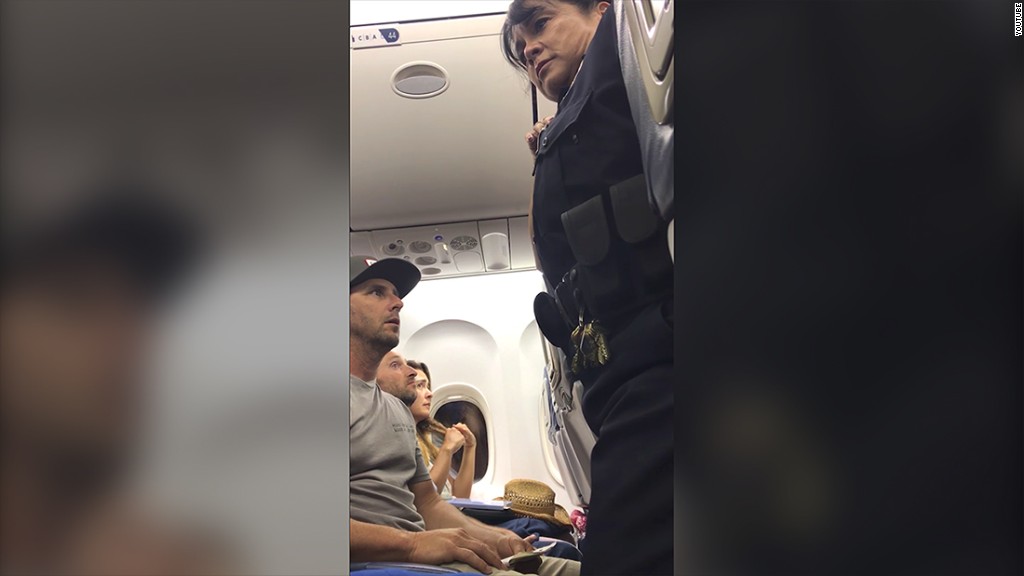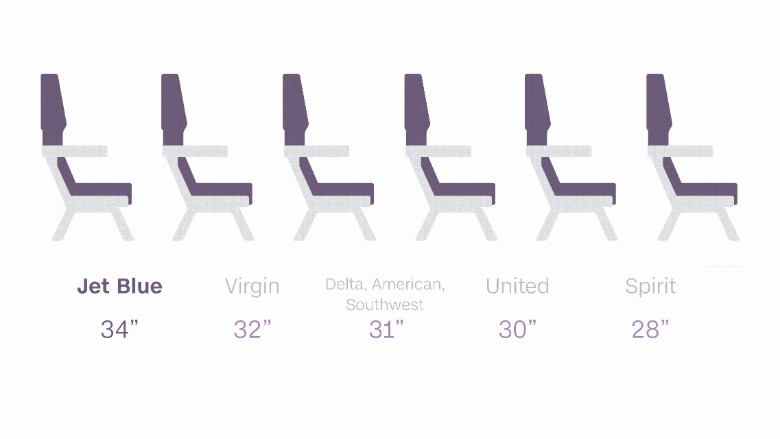
A doctor dragged down the aisle of a plane. A brawl in the cabin. A fight in the jetway. A sobbing mother. An irate flight attendant. A dead rabbit.
Onlookers are convinced they've witnessed an injustice.
We've been consumed lately with one flying incident after another, watching them amplified by social and mainstream media.
But are they really happening with greater frequency?
Actually, the little data there is suggests behavior on planes is improving.
The number of unruly passengers has been on a steady decline since they peaked in 2004. According to the Federal Aviation Administration there were only 92 passengers cited last year for interfering with the duties of a crew member, down from 310 reported 13 years ago.
Related: Delta nixes media event after 'viral' customer service issues
The Department of Transportation tracks the customer complaints it receives. And those are also down — by more than 11% from 2015 to 2016.
The data is far from complete. A passenger asked to leave a plane, for any reason, may not be reported at all if law enforcement wasn't involved.
Still, airline leaders and staff say this latest spate of incidents has forced them to take a hard look at their policies.
Airlines hold a mirror up to American life
So why do we care so much more now than before?
Fliers bring the stress of their lives onto the plane. They are working too hard or not enough. They are worried about money, politics, health care, or their family. The outside world is a factor, experts say. It's baggage they can't check.
And nearly 16 years after the Sept. 11 attacks, most fliers are still running a TSA gauntlet: Shoes and belt off, laptop out of the bag, no water bottles.
Once on board, personal space is shrinking. People can't help but feel territorial.
Passengers are divided into categories for boarding. They compete for a place to store their carry on bag, to save time or avoid a fee.
Related: U.S. airlines collected $4.2 billion in baggage fees

Airlines have shifted their business model away from fares that included checked baggage or a meal. Flying is more affordable and accessible than ever. But comfort and speed are commodities that airlines, and even the TSA, sell — creating the haves and have-nots on airplanes.
"There are few places in modern life where the recent emergence of economic class and status differentials are clearer," said Steven Livingston, a professor at the George Washington University School of Media and Public Affairs. "Some people go on American air carriers angry from the start."
Livingston noted that "status" is literally a sought-after perk on the airlines.
From the security line, to an overcrowded terminal to a cramped seat, "the reduction in personal space results in more anger, frustration and dislike of flying," said Robert Sommer, author of "Personal Space, The Behavioral Basis of Design." "It's one thing after another and they're all additive."
Everyone has a camera
Any single incident, recorded on a smartphone camera and shared a million times on YouTube, Facebook or Twitter, has an explosive global multiplier effect.
"What has changed is the ability to record and share evidence of all of these events and people's awareness of a problem," Livingston said.
Nearly 80% of Americans now own a smartphone and half have a tablet, according to the Pew Research Center. Livingston estimates there are about 7 billion connected devices in the world, each with the ability to film and upload whatever they capture.
"If social media gives you an outlet to fight back against the man, then people take the outlet," said one senior airline executive. "It's a sign of a greater feeling of helplessness that people are feeling" about the world around them.
But there's angst among airline staff, who worry that viral videos of confrontations sometimes miss all the facts and can be misleading to the public.
"Flight attendants must deal with this situation everyday," said Livingston. "They are on edge, too, no doubt" as customers with cameras at the ready watch them do their jobs.

